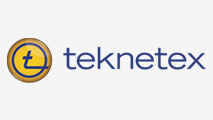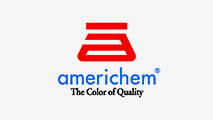Case Studies
The Cleveland Clinic

Location: Cleveland, OH
Challenge: The Cardiac/Peripheral Vascular Lab was logging too much overtime.
Outcome: We reduced staff overtime by 80%.
Background:
The Cleveland Clinic, with over 50,000 employees, is a major powerhouse in American healthcare. Central to its Heart and Vascular Institute is its life-saving Cardiac/Peripheral Vascular Lab, where digital catheterizations are used in diagnostic imaging of heart and vascular blockages. Hospital administrators wanted to reduce staff overtime while maintaining or even improving patient care. The workforce was initially highly resistant to change.
The Lean Transformation:
During a three-day blitz event, we worked with 11 key stakeholder employees to design a new standard procedure for bringing in new patients and then releasing them.
Before we started their Lean Transformation, we videotaped their original cumbersome procedure. During our three-day event, we diagrammed the procedure and did multiple time studies of the entire procedure to find every area of wasted time. With input from all participants, we drew out the new procedure and videotaped it in action. When we presented it to the other lab, they saw the clear advantages of the new procedure and started to buy in.
Outcome:
The results were better than we had expected. The new process yielded a 40% improvement in the time required to admit and release, from 52 minutes to 32 minutes, with the added benefit of a small decrease in infection numbers due to standardization of the process. The new quicker turnaround time reduced total employee overtime by 80%.
The Christie Cookie Company

Location: Nashville, TN
Challenge: The company had waste in its production line that was negatively impacting productivity and profitability.
Outcome: We diagnosed an imbalance in the production line that was causing a misuse of resources, properly balanced the line and redeployed resources to other areas of the organization.
Background:
For more than 25 years, the Christie Cookie Company, now employing about 70 workers, has been making preservative-free cookies and brownies that it markets to both consumers and businesses through retail outlets, its website and its wholesale business. A new COO who had gone through Lean Transformations elsewhere knew the company’s production process was wasting both human and material resources and thus creating a negative impact on the bottom line.
The Lean Transformation:
We conducted a two-week Kaizen blitz event, a rapid-improvement workshop designed to identify and fix individual problems, with a nine-member cross-functional team that evaluated the current process and then designed a new solution that would balance the line.
As with most Lean Transformations looking to find process waste, we started by performing multiple time studies on the current production line. Using cardboard mock-ups and test runs, we practiced numerous new process options. Based on those results, we designed a new production line on paper and then created a mock-up of it. The Kaizen team tested the new process several times, and then we had the company’s complete first shift test it.
The new process worked so well that within two weeks from our initial meetings, the first shift had gone live with it. The following day the second shift went live. To ensure continued success of the new process, we implemented a line lead person to help with flow and a daily management process to help with execution of the process as well as address problems as they arose.
Process improvements involved standardizing all cookie types and brownies and creating visual aids for line workers. We determined the line balance for a +/- 1 headcount and rebalanced the line with the necessary positions and headcount.
Outcome:
The result was that we were able to move a total of seven people (out of 21) from production to other areas of the company where they provided needed help. Additionally, we created two new lead positions that gave the remaining team new career path options. In addition to the line balancing, we also saved around $4,000 in material costs with a new defined process that did not waste materials. The total savings for the company was $179,191.
Teknetex

Location: Nashville, TN
Challenge: After a very successful launch, the company needed a strategy and a plan for continued growth.
Outcome: The company was named to the 2012 Fortune 500 list and also named one of the 500 fastest growing companies in the country.
Background:
When we began working with Teknetex, an IT staffing company with around 15 employees, the management team consisted of four people with very different personalities. They had experienced phenomenal growth since their founding and were looking for ways to sustain it. None had ever worked with a facilitator before.
The Lean Transformation:
Rather than a strict Lean Transformation, we worked more as a facilitator with the four-person leadership team. Over the course of two years, we moderated and led them in annual three-day day strategic planning sessions.
To help the four different personalities come together on a single strategy, we chose to take a more enlightened positive approach than the more traditional one they had all experienced before. Rather than focusing on their company’s strengths, weaknesses, opportunities and threats (SWAT), we based our work on its strengths, opportunities, aspirations and desired results (SOAR).
To ensure that the team executed the agreed-upon strategy, we also facilitated bi-weekly governance meetings that included the four leaders as well as other key team members.
Outcome:
After two years of leadership strategy sessions and governance meetings, the company was named to the 2012 Fortune 500 list and also named one of the 500 fastest growing companies in the country.
Americhem

Location: Dalton, GA
Challenge: Inconsistent communication among shifts in the plant was causing slow starts of each shift and occasionally even downtime during the start of a shift.
Outcome: We helped shift leaders design a new communications process that eliminated both the slow shift starts and the related downtime.
Background:
Ohio-based Americhem is a global master batch and color concentrate manufacturer that makes custom-crafted color and additive solutions used in the carpet industry. Its plant in Dalton, GA, employs three shifts of 80 employees who specialize in color master batches, single pigment dispersions, additive concentrates and plastic compounding.
Production was being slowed down because the shifts were often late in getting started and sometimes even experienced actual downtime. As most of the employees on the line spoke English, no one suspected a communications breakdown as the cause of the problem.
The Lean Transformation:
After spending several weeks studying plant operations, we realized that the delays were caused by inconsistent communication among the shifts, especially as one was finishing and the next one starting. Part of the problem was that while everyone spoke English, not everyone was able to read English.
We began with a two-day brainstorming event with the three shift supervisors and five other key team members. When on the second day we progressed to an appreciative inquiry summit, a process that builds on what the company does right to address challenges, we were able to build off the shifts’ current strengths and designed a new intra-shift communications process.
From the two-day event, the inquiry team produced three distinct ways of addressing their communication problems, all of which all members “owned”:
- A visual aid board for communications between shifts moving forward. This board, located at the supervisors’ desks, visually communicates status between shift changes. Its purpose is to bring visibility to any issues and to allow another avenue of communication between shift hand-offs.
- Communications training to encourage better ongoing communications throughout the plant by teaching people to seek common ground with others, be open-minded and flexible, refrain from gossip, show respect for others, stay positive and relay on one another for support.
- A pilot mentoring program to encourage employees to ask for help with any challenges they encounter in the workplace, including communications problems.
Outcome:
Thanks to the new process, the plant now experiences essentially zero downtime and no slow shift-start time issues. The workforce has been able to sustain all the improvements with no further input from either their leadership or outside consultants.
